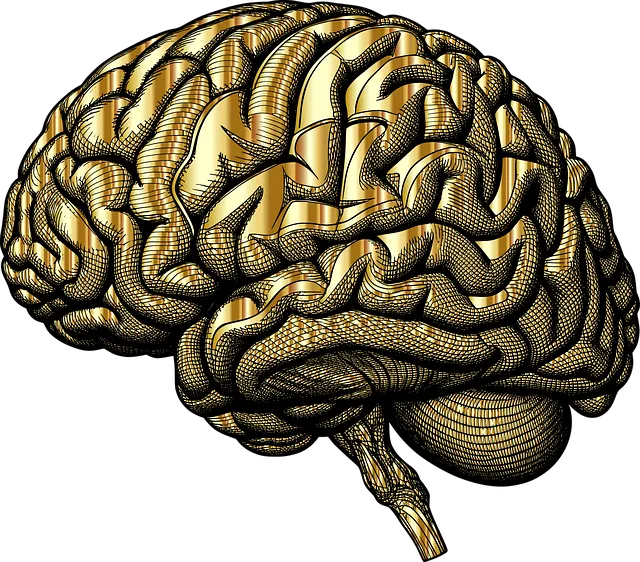Kaiser Permanente mental health centers in Longmont prioritize accurate diagnoses through multi-faceted strategies, including public awareness, personalized coaching, and continuous training. Their structured evaluation processes, peer discussions, specialized teams, and clinical guidelines ensure diagnoses align with established criteria. Integrated with innovative techniques like analytics, artificial intelligence, conflict resolution, and education programs, these approaches enhance diagnostic accuracy and improve patient care, as reflected in positive Kaiser Permanente mental health center reviews Longmont.
Mental illness diagnoses are critical for effective treatment, yet accuracy remains a challenge. This article explores efforts to enhance diagnosis accuracy, focusing on innovations at leading centers like Kaiser Permanente Longmont, known for its enhanced mental health care. We delve into review and feedback systems driving improvement and look ahead to future directions, including cutting-edge technologies promising transformative changes in mental health diagnostics, as highlighted in Kaiser Permanente mental health center reviews in Longmont.
- Understanding the Importance of Accurate Mental Illness Diagnoses
- Kaiser Permanente Longmont: A Center for Enhanced Diagnosis and Treatment
- Review and Feedback Systems: Driving Improvement in Diagnostic Accuracy
- Future Directions: Innovations to Enhance Mental Health Care Diagnosis
Understanding the Importance of Accurate Mental Illness Diagnoses

Accurate mental illness diagnoses are paramount for effective treatment and improved quality of life. Errors in diagnosis can lead to misaligned care plans, causing patients to receive inappropriate or insufficient support. This is particularly concerning given the complex nature of mental health conditions, which often overlap, making differentiation challenging. At Kaiser Permanente mental health centers like those in Longmont, efforts are focused on enhancing diagnostic accuracy through a multi-faceted approach.
This involves integrating Public Awareness Campaigns that educate both patients and healthcare providers about mental wellness and the nuances of various disorders. Additionally, programs like Emotional Regulation coaching have been developed to empower individuals with coping strategies, promoting self-awareness and early intervention. These initiatives are complemented by ongoing training for healthcare professionals, ensuring they stay abreast of latest research and treatment methodologies. By combining public education, personalized support, and advanced training, Kaiser Permanente strives to improve mental illness diagnosis accuracy, ultimately leading to better patient outcomes.
Kaiser Permanente Longmont: A Center for Enhanced Diagnosis and Treatment

Kaiser Permanente Longmont stands as a beacon of hope and innovation in mental health care. This center is dedicated to enhancing diagnosis and treatment, setting new standards for patient-centric care. With a focus on compassion cultivation practices, they strive to create a soothing environment that facilitates healing. Trained professionals employ advanced techniques to accurately diagnose various mental health conditions, including anxiety and mood disorders, ensuring personalized and effective treatment plans.
The facility’s unique approach combines traditional therapy with innovative strategies, making it a top choice among Kaiser Permanente mental health center reviews in Longmont. Their commitment to Anxiety Relief and Mood Management has garnered recognition, attracting individuals seeking transformative experiences. This center exemplifies the future of mental healthcare, offering comprehensive support for those navigating their mental health journeys.
Review and Feedback Systems: Driving Improvement in Diagnostic Accuracy

At Kaiser Permanente mental health centers like the one in Longmont, review and feedback systems play a pivotal role in enhancing diagnostic accuracy. By implementing structured evaluation processes, healthcare professionals can systematically assess patient symptoms, behaviors, and histories, reducing potential biases and improving consistency. These reviews often involve peer discussions and input from specialized teams, ensuring that diagnoses align with established criteria and clinical guidelines.
Moreover, integrating tools like Crisis Intervention Guidance and Depression Prevention protocols, alongside practices such as Mindfulness Meditation, contributes to a comprehensive approach. Regular feedback sessions encourage open dialogue about complex cases, fostering an environment of continuous learning. This iterative process not only improves diagnostic accuracy but also enhances patient care by enabling more effective treatment planning tailored to individual needs.
Future Directions: Innovations to Enhance Mental Health Care Diagnosis

The future of mental health care diagnosis lies in embracing innovative strategies and technologies that can complement traditional methods. Kaiser Permanente mental health center reviews from Longmont highlight a growing demand for effective, personalized solutions. One promising direction is leveraging advanced analytics and artificial intelligence to analyze vast amounts of patient data, including electronic health records, social media trends, and wearable device insights, to identify patterns indicative of mental health issues early on. This can lead to more precise diagnoses and tailored interventions.
Additionally, integrating Conflict Resolution Techniques and Mental Wellness Coaching Programs within healthcare systems can foster better patient-provider communication, improve therapy adherence, and enhance overall treatment outcomes. Development of Mental Health Education Programs that equip individuals with coping mechanisms and promote mental wellness from an early age could also significantly reduce the burden on diagnosis and treatment. These approaches, coupled with ongoing research into novel therapeutic modalities, hold the key to improving diagnosis accuracy and ultimately enhancing the quality of care provided at Kaiser Permanente mental health centers, such as those in Longmont.
Mental illness diagnosis accuracy is a multifaceted issue that requires continuous improvement. Efforts such as enhancing training, implementing robust review and feedback systems, and embracing innovative technologies are crucial steps towards ensuring more accurate and timely diagnoses. The success of initiatives like Kaiser Permanente Longmont’s enhanced diagnosis and treatment center highlights the potential for significant improvements in mental health care. As we look to the future, integrating advanced diagnostic tools and fostering a culture of continuous learning will be key to revolutionizing mental health care, with the Kaiser Permanente mental health center reviews in Longmont serving as a beacon for best practices worldwide.






